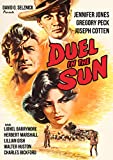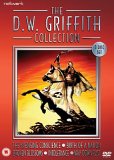 Highlander - Immortal Edition | DVD | (26/02/2007)
from £N/A
| Saving you £N/A (N/A%)
| RRP
Highlander - Immortal Edition | DVD | (26/02/2007)
from £N/A
| Saving you £N/A (N/A%)
| RRP The first Highlander cinematic experience sizzles with energy thrilling action sequences and electrifying sword fights and is played out at a frenetic pace by a renowned cast. Christopher Lambert gives a mesmerising performance in his most famed role as the Scotsman out to fulfil his destiny as an Immortal under the tutelage of the flamboyant Ramirez played for laughs with great panache by the enigmatic Sean Connery. The year is 1536. Scottish Clansman Connor MacLeod (Christopher Lambert) is mortally wounded in battle by a terrifying warrior - The Kurgan (Clancy Brown). When his wounds miraculously heal Connor is cast out by the superstitious villagers to live a life of solitude. Several years later Juan Sanchez Villa-Lobos Ramirez (Sean Connery) a nobleman of Egyptian / Spanish descent teaches him that like he and the Kurgan MacLeod is an immortal who can only die by decapitation. He tells how the immortals are fated to duel down the ages to a mysterious distant time called ""The Gathering"" when the last few will battle for ""The Prize"". So begins a romantic action-packed saga spanning four centuries to modern day Manhattan where a reign of terror grips the city and headless corpses baffle the police. The Kurgan has arrived in town as a one-man wrecking crew maddened by aeons of blood lust slaughtering everything in his path searching for his ancient enemy - the Highlander. It all comes to a climax with an earth-shattering showdown between to two old foes against the spectacular New York night sky.... There can be only one!
![Race To Space [2001]](/pictures/1029234.jpg) Race To Space | DVD | (06/12/2004)
from £N/A
| Saving you £N/A (N/A%)
| RRP
Race To Space | DVD | (06/12/2004)
from £N/A
| Saving you £N/A (N/A%)
| RRP The true story of Mac: the first chimpanzee in space. Wilhelm Von Huber is a NASA scientist who moves to Florida with his son Billy after the recent death of Billy's mother. But there's a widening gap developing between father and son because Billy thinks his father is boring and yearns to be with the young astronauts. Then Billy gets his wish when Dr. Donni McGuinness enlists his help to train the chimps NASA needs for an experimental space flight. Billy's favourite Mac is chosen to be the first in space but the boy then realises the real risks involved. Can Wilhelm and Billy pull together to ensure a happy outcome for Mac's mission? Based on a true story.
![The X Files: Deadalive [1994]](/pictures/1029341.jpg) The X Files: Deadalive | DVD | (06/08/2001)
from £N/A
| Saving you £N/A (N/A%)
| RRP
The X Files: Deadalive | DVD | (06/08/2001)
from £N/A
| Saving you £N/A (N/A%)
| RRP This release consists of two episodes--"This is Not Happening" and "Deadalive"--of the eighth series of The X-Files spliced together into a feature-length story. With David Duchovny contracted only to do a certain percentage of shows this year, Robert Patrick was brought in as Agent John Doggett, partnering Gillian Anderson's Agent Scully while Duchovny's Mulder is off being tortured by alien-abductors in what looks like an industrial dentist's chair. This story comes about two-thirds of the way through the arc and sets up Duchovny's return to the show--though he literally has to die and come back to get back on the case. It's an unfortunate paradox that most X-Files stand-alone releases concentrate on the dreary alien-abduction/conspiracy episodes which carry the greater storyline of the show, giving the misleading impression that the series is a drearily solemn, badly plotted, straight-faced but stupid sci-fi soap opera. Always skipped over are the far more interesting, entertaining and impressive stand-alone supernatural mysteries or strange comic exercises. Though Duchovny is mostly lying in a hospital bed with oatmeal all over his face, Anderson--whose character is pregnant this series, another dull sub-plot--still gives an amazingly committed performance and gets terrific support from Patrick, whose character has shaken up a lot of what was settled or stale about the show, and the always-underrated Mitch Pileggi as Assistant Director Skinner. The story features several wild-eyed UFO guru types (including Roy Thinnes, once star of The Invaders) and returned abductees transformed into un-killable alien zombies. It's as well made as ever, with ominous shadows and the odd smart line, but you need to have been paying very close attention for seven years to understand what's going on. With Duchovny a potential escapee and Anderson perhaps in line to follow, this episode brings on the excellent Annabeth Gish as Agent Monica Reyes, a specialist in bizarre rituals, who is being effectively set up to partner Patrick in a post-Mulder-and-Scully X-Files that might well keep the franchise going on forever Star Trek-fashion. --Kim Newman
 The X Files - Complete DVD Collection | DVD | (30/10/2006)
from £N/A
| Saving you £N/A (N/A%)
| RRP
The X Files - Complete DVD Collection | DVD | (30/10/2006)
from £N/A
| Saving you £N/A (N/A%)
| RRP Now you can own the entire adventures of The X-Files in this bumper DVD box set. every episode from all 9 seasons of this multi-award award-winning show are available for the first time in this exclusive Collector's Edition. Don't miss the opportunity to see how the phenomenon all began back in 1993 and how it came to a close 9 years later!
![D.W. Griffith - Monumental Epics [1915]](/pictures/1012781.jpg) D.W. Griffith - Monumental Epics | DVD | (24/06/2002)
from £N/A
| Saving you £N/A (N/A%)
| RRP
D.W. Griffith - Monumental Epics | DVD | (24/06/2002)
from £N/A
| Saving you £N/A (N/A%)
| RRP Theres little doubt that much of what we now take for granted about cinema owes much to the vision of director D W Griffith. Monumental Epics collects five of his most influential silent masterpieces. The Birth of a Nation (1915) is also the birth of the epic film. Made to commemorate the 50th anniversary of the end of the American Civil War this provocative film unflinchingly shows the humiliation of Southern culture, the "heroism" of the Ku Klux Klan, and links the Union and Confederacy by a common Aryan birthright. All of which has to be viewed in its period context if it is to be viewed at all. Intolerance (1916) is film-making of epic complexity. Human intolerance is related through a modern tale of wrongful conviction, intercut by three stories from Babylonian, Judean, and French history to point up the issue through the ages. The intricacy of the intercutting is breathtaking even now, but those as confused as the first audiences evidently were can opt to see each story separately. Sensitively tinted, this is Griffith's finest three hours. Broken Blossoms (1919) has Griffith venturing into domestic melodrama. Although there's a clear moral to be drawn from this tale of compassion in the face of ignorance and brutality, neither the over-acting of Lillian Gish and Donald Crisp, nor the vein of sentimentality that creeps into their characters' relationship allow the viewer to forget the period-piece nature of the film. Here an appropriately expressive musical score helps keep viewing at an attentive level. Way Down East (1920) shows Griffith moving from the epic to the personal, though still on a large scale. The combining of old-style melodrama with latter-day female emancipation is tellingly brought off, and Lillian Gish excels as the country girl used and abused by male society, until "rescued" by a farmer of true moral scruples. Unconvinced? Then go straight to the climactic snowstorm and ice floe sequences--Eisenstein et al are inconceivable without this as trailblazer. Abraham Lincoln (1930) marked Griffith's entry into the talkie era. Tautly directed, it offers a historically accurate account of the 16th US President's rise to power and his visionary outlook on American society. Civil War scenes are implied rather than enacted, and its Walter Huston's robust yet understated acting that carries the day, with sterling support from Una Merkel as Ann Rutledge and Hobart Bosworth as General Lee. On the DVD: Stylishly packaged, restoration and digital remastering has been carried out to Eureka's usual high standard, and the 4:3 aspect ratio has commendable clarity. Birth of a Nation has Joseph Carl Breil's original orchestral score and a pithy "making of" film by Russell Merritt. Intolerance contains a useful rolling commentary and a great wurlitzer soundtrack too. Way Down East includes a commentary. Abraham Lincoln also has a commentary, though Hugo Riesenfeld's score often verges on the mawkish. Overall this set is a must for anyone remotely interested in film as a living medium.--Richard Whitehouse
![When He's Not A Stranger [1989]](/pictures/1020464.jpg) When He's Not A Stranger | DVD | (25/09/2000)
from £13.48
| Saving you £-0.49 (N/A%)
| RRP
When He's Not A Stranger | DVD | (25/09/2000)
from £13.48
| Saving you £-0.49 (N/A%)
| RRP An estimated one out of every three women will be sexually assaulted at some time in their life with ninety percent of these victims choosing not to report the assaults to the police. This powerful and disturbing film deals with 'Forcible Rape Amongst Friends' one of the most prevelant crimes facing young women today. Annabeth Gish (Mystic Pizza) portrays the shocked and violated victim Lynn McKenna who is lured into a sense of false security and raped by her bestfriend's boyfriend John Telersky (Deathstalker 2). Confused and ashamed and faced with the knowledge of almost certain defeat Lynn must decide whether or not to press criminal charges against her attacker and bring about necessary justice.
![Way Down East [1920]](/pictures/1013119.jpg) Way Down East | DVD | (07/05/2001)
from £N/A
| Saving you £N/A (N/A%)
| RRP
Way Down East | DVD | (07/05/2001)
from £N/A
| Saving you £N/A (N/A%)
| RRP Way Down East was the most successful film of the 1920s, even more so than the original versions of Ben-Hur or The Ten Commandments. That says much about tastes and values of the day, since this is no visually spectacular epic designed to wow audiences: director DW Griffith gave it the subtitle "A Simple Story of Plain People". The story follows impoverished New England country girl Anna Moore (Lillian Gish) to Boston in search of family aid. Instead she's duped into a fake marriage by playboy Lennox Sanderson (Lowell Sherman). Pregnancy forces Sanderson to abandon her to care for the child alone, which dies soon after birth. The disgrace sends her back into the countryside to work for Squire Bartlett, whose son David (Richard Barthelmess) begins to fall for her. But the dreadful secret threatens to be revealed, since the dastardly Sanderson turns out to be their neighbour. Themes of loyalty and social change come to a head for a thrilling finale. Amazing stunt work occurs on a frozen river's ice sheets that break up, dashing an unconscious Anna toward a waterfall. Populated by eccentric cameo roles, this view of 1920s' life is a far more fascinating exploration of the contemporary female than the novel or disastrous stage play that preceded it. On the DVD: Naturally a movie from 1920 is in mono and 4:3 ratio (which is effectively the old Academy standard ratio). But with subtle colour tints and using a musical score from its 1931 reissue, it still looks pretty good. Only a few reels have suffered damage (eg some heat blisters), otherwise film historian David Shepard's restoration job is commendable. The only extra is an essay on the history of the film which scrolls up the screen as an introduction. --Paul Tonks
 Highlander - Steelbook - Limited Edition (4K Ultra HD) (+ Blu-ray) | Blu Ray | (04/11/2022)
from £N/A
| Saving you £N/A (N/A%)
| RRP
Highlander - Steelbook - Limited Edition (4K Ultra HD) (+ Blu-ray) | Blu Ray | (04/11/2022)
from £N/A
| Saving you £N/A (N/A%)
| RRP  Duel in the Sun (Roadshow Edition) | DVD | (15/08/2017)
from £N/A
| Saving you £N/A (N/A%)
| RRP
Duel in the Sun (Roadshow Edition) | DVD | (15/08/2017)
from £N/A
| Saving you £N/A (N/A%)
| RRP ![DENEN MAN NICHT VERGIBT - MOVI [Blu-ray] [1960]](/pictures/1158495.jpg) DENEN MAN NICHT VERGIBT - MOVI | Blu Ray | (24/08/2018)
from £N/A
| Saving you £N/A (N/A%)
| RRP
DENEN MAN NICHT VERGIBT - MOVI | Blu Ray | (24/08/2018)
from £N/A
| Saving you £N/A (N/A%)
| RRP ![True Stories [1989]](/pictures/1019926.jpg) True Stories | DVD | (25/03/2002)
from £N/A
| Saving you £N/A (N/A%)
| RRP
True Stories | DVD | (25/03/2002)
from £N/A
| Saving you £N/A (N/A%)
| RRP When He's Not A Stranger: An estimated one out of every three women will be sexually assaulted at some time in their life. Annabeth Gish portrays a shocked and violated victim who is lured into a false security and raped by her best friend's boyfriend. Little Girl Lost: Tess Harper and Frederic Forrest star in this inspiring story based on a real-life drama of the Brady family fighting to adopt a little girl who first came into their lives as a foster child.
 DW Griffith Collection | DVD | (20/03/2006)
from £N/A
| Saving you £N/A (N/A%)
| RRP
DW Griffith Collection | DVD | (20/03/2006)
from £N/A
| Saving you £N/A (N/A%)
| RRP The Avenging Conscience:Nightmarish visions of ghouls and devils highlight this D.W. Griffith silent feature based around Edgar Allen Poe's The Telltale Heart and Annabelle Lee. A young man (Henry B. Walthall) finds himself prevented from wooing the girl he loves (Blanche Sweet) due to the tyrannical edicts of his mean old uncle (Spottiswoode Aitken). The poor lad becomes haunted by a series of visions that convince him to murder this interfering relative. After the murder has been planned and executed the man finds himself haunted by still more visions this time of the fire and brimstone variety. An inquiring detective (Ralph Lewis) adds to the ever-mounting paranoia. Birth Of A Nation: The first part of the film chronicles the Civil War as experienced through the eyes of two families; the Stonemans from the North and the Camerons of the South. Lifelong friends they become divided by the Mason-Dixon line with tragic results. Large-scale battle sequences and meticulous historical details culminate with a staged re-creation of Lincoln's assassination. The second half of the film chronicles the Reconstruction as Congressman Austin Stoneman (Ralph Lewis) puts evil Silas Lynch (George Siegmann) in charge of the liberated slaves at the Cameron hometown of Piedmont. Armed with the right to vote the freed slaves cause all sorts of trouble until Ben Cameron (Henry B. Walthall) founds the Ku Klux Klan and restores order and decency to the troubled land. While The Birth Of A Nation was a major step forward in the history of filmmaking it must be noted that the film supports a racist worldview. Broken Blossoms: This strangely beautiful silent film from D.W. Griffith is also one of his more grim efforts; an indictment of child abuse and the violence of western society. An idealistic Asian (Richard Barthelemess) travels to the west in hopes of spreading the Buddha's message of peace to the round-eyed sons of turmoil and strife. Instead he winds up a disillusioned opium-smoking shopkeeper in London's squalid Limehouse District. Down the street a poor waif (Lillian Gish) suffers horrific abuse at the hands of her boxer father (Donald Crisp). When fortune delivers the battered girl into the Asian's tender care a strange and beautiful love blossoms between them a love far too fragile to survive their brutal environment. Intolerance: D.W. Griffith's biggest most ambitious spectacle uses stories from different times and places to illustrate humanity's intolerance of religious differences throughout the ages. The most visually impressive of these chronicles is the fall of Babylon for which Griffith built the largest sets in Hollywood and filled them with thousands of extras; there's also Christ's crucifixion and the massacre of the Heugenots in 15th century France. The most emotionally involving tale is the modern one about a poor girl (Mae Marsh) whose life is repeatedly ruined by the zealotry of social reformers. The image of a mother (Lillian Gish) rocking her child in a cradle links the stories. At one point angels reach down from heaven to stop soldiers in midbattle making it clear that Griffith intended this follow-up to The Birth Of A Nation as a message of global peace and love Way Down East: Innocent Anna is sent by her poverty-stricken mother to visit rich relations in Boston where she is seduced into a sham marriage by a smooth-talking scoundrel. When she becomes pregnant he abandons her; later the baby dies. Now a social outcast she changes her name and eventually finds shelter at the estate of the sternly religious Squire Bartlett. She falls in love with his handsome son but cannot divulge to him her terrible secret for fear of his father's righteous
![Highlander (Special Edition) [DVD]](/pictures/1095260.jpg) Highlander (Special Edition) | DVD | (01/01/2020)
from £N/A
| Saving you £N/A (N/A%)
| RRP
Highlander (Special Edition) | DVD | (01/01/2020)
from £N/A
| Saving you £N/A (N/A%)
| RRP The first Highlander cinematic experience sizzles with energy thrilling action sequences and electrifying sword fights and is played out at a frenetic pace by a renowned cast. Christopher Lambert gives a mesmerising performance in his most famed role as the Scotsman out to fulfil his destiny as an Immortal under the tutelage of the flamboyant Ramirez played with pastiche and for laughs by the enigmatic Sean Connery. The year is 1536. Scottish Clansman Connor MacLeod (Christopher Lambert) is mortally wounded in battle by a terrifying warrior - The Kurgan (Clancy Brown). When his wounds miraculously heal Connor is cast out by the superstitious villagers to live a life of solitude. Several years later Juan Sanchez Villa-Lobos Ramirez (Sean Connery) a nobleman of Egyptian / Spanish descent teaches him that like he and the Kurgan MacLeod is an immortal who can only die by decapitation. He tells how the immortals are fated to duel down the ages to a mysterious distant time called The Gathering when the last few will battle for The Prize. So begins a romantic action-packed saga spanning four centuries to modern day Manhattan where a reign of terror grips the city and headless corpses baffle the police. The Kurgan has arrived in town as a one-man wrecking crew maddened by aeons of blood lust slaughtering everything in his path searching for his ancient enemy - the Highlander. It all comes to a climax with an earth-shattering showdown between to two old foes against the spectacular New York night sky: there can be only one!
![Adventures of Huckleberry Finn [DVD]](/pictures/1129026.jpg) Adventures of Huckleberry Finn | DVD | (31/01/2003)
from £N/A
| Saving you £N/A (N/A%)
| RRP
Adventures of Huckleberry Finn | DVD | (31/01/2003)
from £N/A
| Saving you £N/A (N/A%)
| RRP Based on the classic novel by Mark Twain, this presentation features rich detail and a huge all-star cast including Jim Dale and Lillian Gish. This tale will delight both children and adults alike. Huckleberry Finn (Patrick Day), a rambunctious boy adventurer chafing under the bonds of civilization, escapes his humdrum world and his selfish, plotting father by sailing a raft down the Mississippi River. Accompanying him are his friends Tom Sawyer (Eugene Oakes) and Jim (Samm-Art Williams), a s...

Please wait. Loading...
This site uses cookies.
More details in our privacy policy